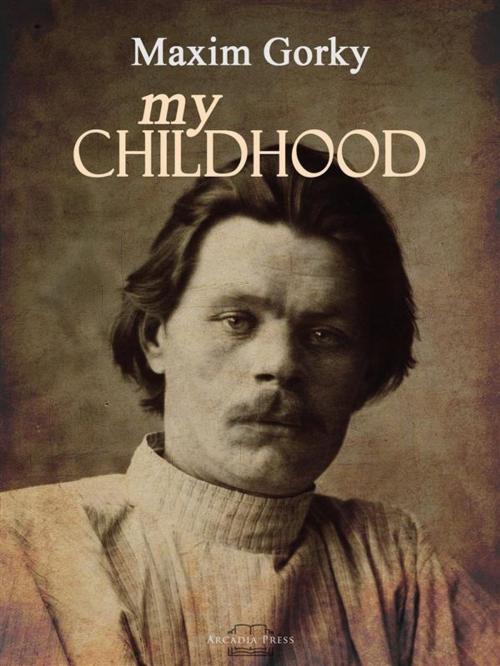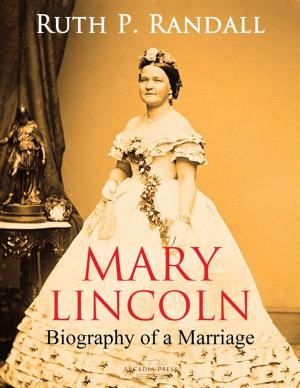| Author: | Maxim Gorky | ISBN: | 9788826021478 |
| Publisher: | Arcadia Press | Publication: | February 12, 2017 |
| Imprint: | Language: | English |
| Author: | Maxim Gorky |
| ISBN: | 9788826021478 |
| Publisher: | Arcadia Press |
| Publication: | February 12, 2017 |
| Imprint: | |
| Language: | English |
Out of the darkest depths of life, where vice and crime and misery abound, comes the Byron of the twentieth century, the poet of the vagabond and the proletariat, Maxim Gorky. Not like the beggar, humbly imploring for a crust in the name of the Lord, nor like the jeweller displaying his precious stones to dazzle and tempt the eye, he comes to the world — nay, in accents of Tyrtaeus this commoner of Nizhni Novgorod spurs on his troops of freedom-loving heroes to conquer, as it were, the placid, self- satisfied literatures of to-day, and bring new life to pale, bloodless frames.
Like Byron’s impassioned utterances, “borne on the tones of a wild and quite artless melody,” is Gorky’s mad, unbridled, powerful voice, as he sings of the “madness of the brave,” of the barefooted dreamers, who are proud of their idleness, who possess nothing and fear nothing, who are gay in their misery, though miserable in their joy.
Gorky’s voice is not the calm, cultivated, well-balanced voice of Chekhov, the Russian De Maupassant, nor even the apostolic, well- meaning, but comparatively faint voice of Tolstoy, the preacher: it is the roaring of a lion, the crash of thunder. In its elementary power is the heart. rending cry of a sincere but suffering soul that saw the brutality of life in all its horrors, and now flings its experiences into the face of the world with unequalled sympathy and the courage of a giant.
For Gorky, above all, has courage; he dares to say that he finds the vagabond, the outcast of society, more sublime and significant than society itself.
His Bosyak, the symbolic incarnation of the Over-man, is as naive and as bold as a child — or as a genius. In the vehement passions of the magnanimous, compassionate hero in tatters, in the aristocracy of his soul, and in his constant thirst for Freedom, Gorky sees the rebellious and irreconcilable spirit of man, of future man — in these he sees something beautiful, something powerful, something monumental, and is carried away by their strange psychology. For the barefooted dreamer’s life is Gorky’s life, his ideals are Gorky’s ideals, his pleasures and pains, Gorky’s pleasures and pains.
And Gorky, though broken in health now, buffeted by the storms of fate, bruised and wounded in the battle-field of life, still like Byron and like Lermontov,
“— seeks the storm As though the storm contained repose.”
Out of the darkest depths of life, where vice and crime and misery abound, comes the Byron of the twentieth century, the poet of the vagabond and the proletariat, Maxim Gorky. Not like the beggar, humbly imploring for a crust in the name of the Lord, nor like the jeweller displaying his precious stones to dazzle and tempt the eye, he comes to the world — nay, in accents of Tyrtaeus this commoner of Nizhni Novgorod spurs on his troops of freedom-loving heroes to conquer, as it were, the placid, self- satisfied literatures of to-day, and bring new life to pale, bloodless frames.
Like Byron’s impassioned utterances, “borne on the tones of a wild and quite artless melody,” is Gorky’s mad, unbridled, powerful voice, as he sings of the “madness of the brave,” of the barefooted dreamers, who are proud of their idleness, who possess nothing and fear nothing, who are gay in their misery, though miserable in their joy.
Gorky’s voice is not the calm, cultivated, well-balanced voice of Chekhov, the Russian De Maupassant, nor even the apostolic, well- meaning, but comparatively faint voice of Tolstoy, the preacher: it is the roaring of a lion, the crash of thunder. In its elementary power is the heart. rending cry of a sincere but suffering soul that saw the brutality of life in all its horrors, and now flings its experiences into the face of the world with unequalled sympathy and the courage of a giant.
For Gorky, above all, has courage; he dares to say that he finds the vagabond, the outcast of society, more sublime and significant than society itself.
His Bosyak, the symbolic incarnation of the Over-man, is as naive and as bold as a child — or as a genius. In the vehement passions of the magnanimous, compassionate hero in tatters, in the aristocracy of his soul, and in his constant thirst for Freedom, Gorky sees the rebellious and irreconcilable spirit of man, of future man — in these he sees something beautiful, something powerful, something monumental, and is carried away by their strange psychology. For the barefooted dreamer’s life is Gorky’s life, his ideals are Gorky’s ideals, his pleasures and pains, Gorky’s pleasures and pains.
And Gorky, though broken in health now, buffeted by the storms of fate, bruised and wounded in the battle-field of life, still like Byron and like Lermontov,
“— seeks the storm As though the storm contained repose.”















